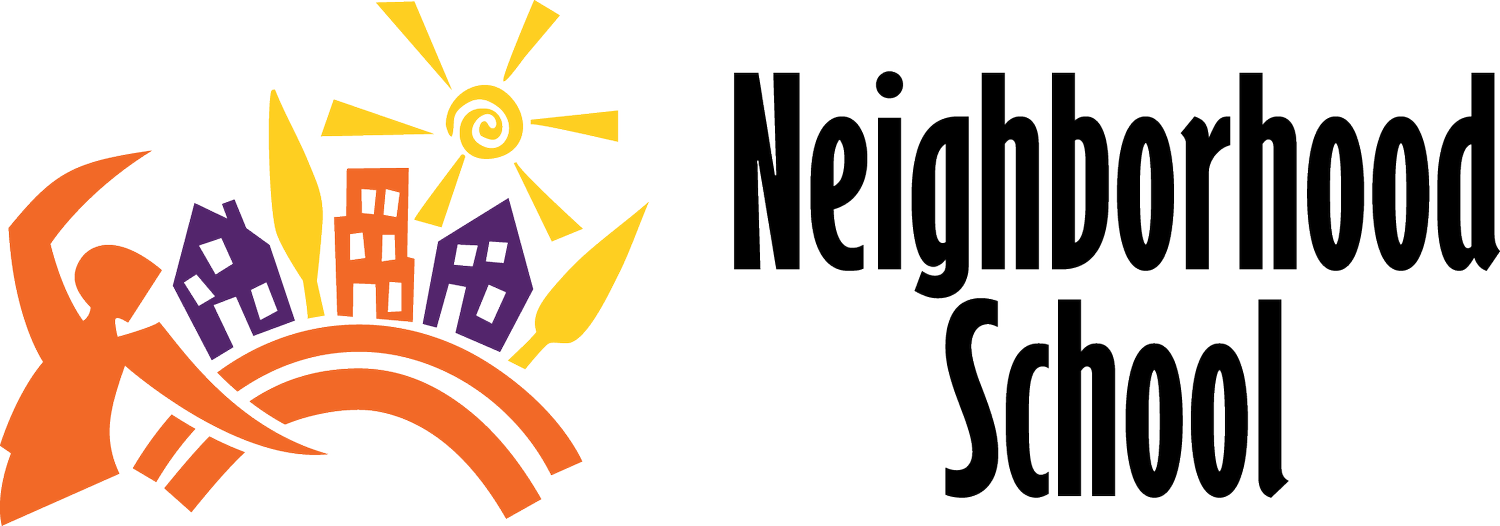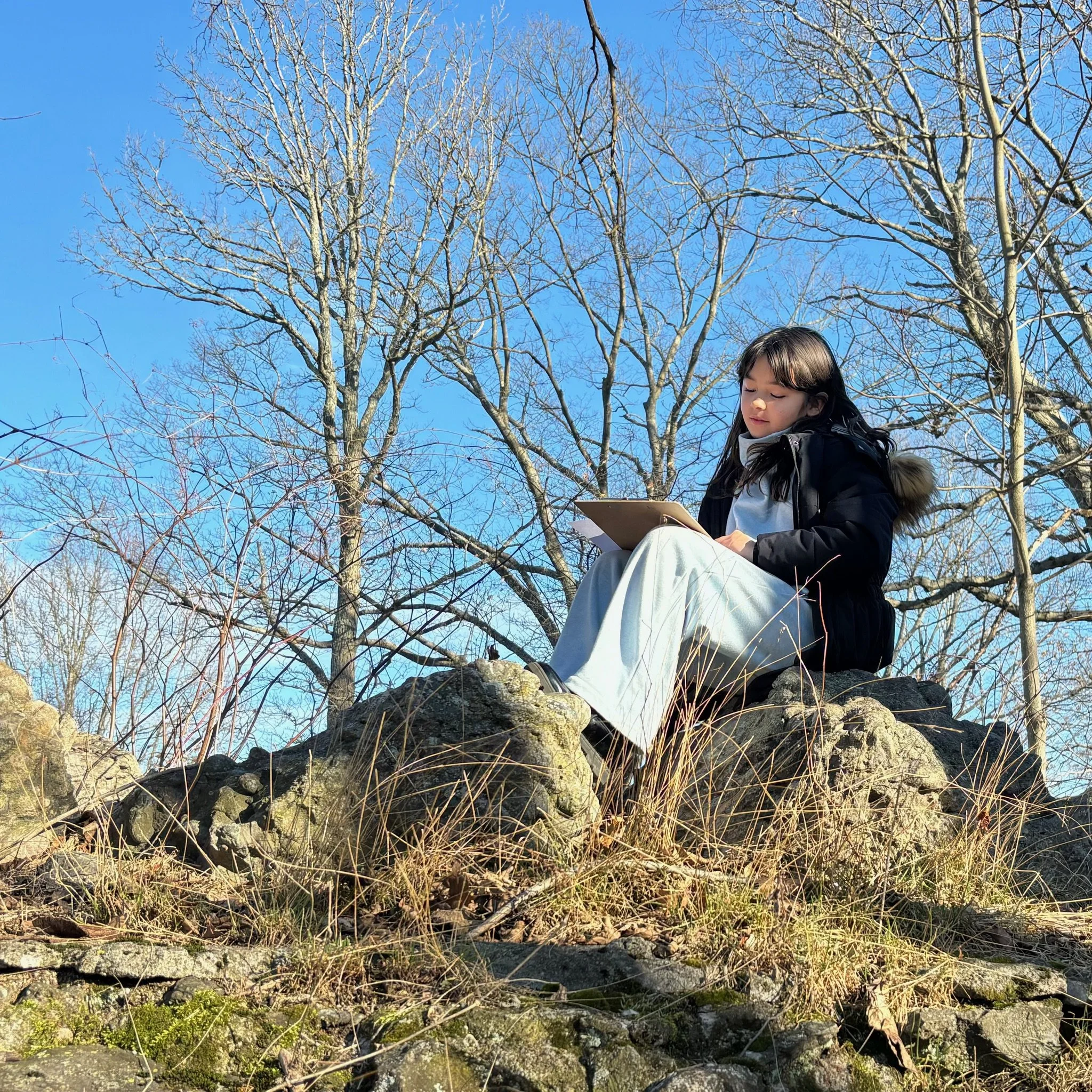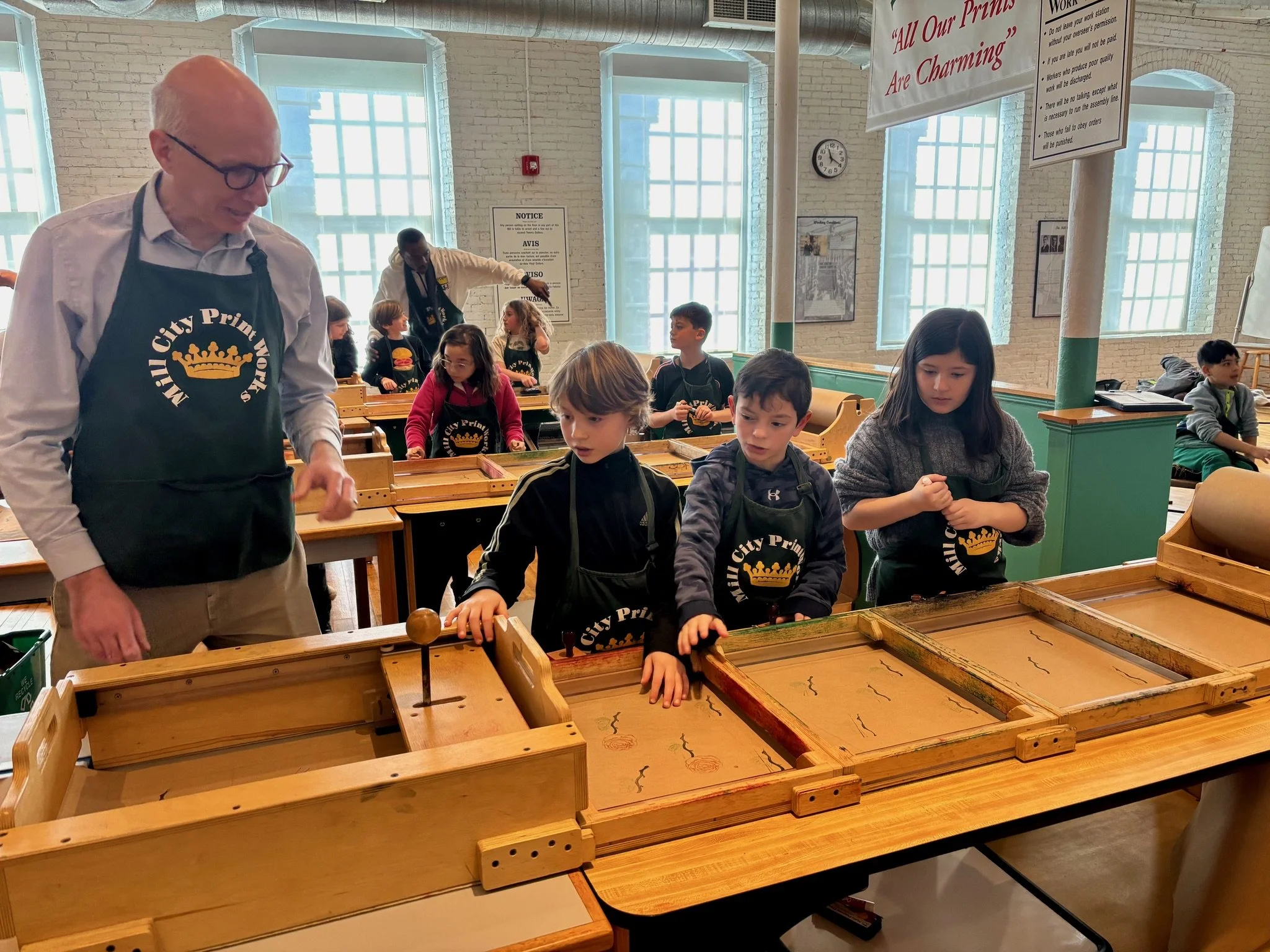Level Three
Walking up the stairs to the cozy third-floor attic, you can hear the lively chatter of third and fourth graders deeply engaged in inquiry and practice. Level Three students are known for their exponential growth as readers, writers, and critical thinkers. They leap from the world of whole numbers to fractions and decimals. Their writing expands into longer explorations of craft and exposition. They venture into new worlds of complex characters and interesting reading inferences. Most importantly, Level Three students investigate the natural and political world around them at greater depths, using their expanding toolkit of academic skills. Their teachers listen to their interests and respond by creating relevant and rigorous curricula.
Critical Thinking and Student Passion
Based on students’ love of mythology, folk tales, and magical stories, Level Three teachers devised an interdisciplinary unit on storytelling. Lessons included: histories of multicultural storytelling, kinesthetic approaches to oral storytelling, and literary understandings of story structures. Students met master orators, learned culturally relevant tales, and practiced emotional and executive functioning skills related to public presenting.
Local and current events are often inspirations for inquiry-based learning. When the city was looking for resident involvement with planning for a local park renovation, Level Three students decided to become involved. Through lessons on civics and writing, Level Three students had first-hand experience with creating more public good in their community. Students felt empowered and taken seriously, while developing in some key age-appropriate social studies and literacy standards.
Level Three students bring in their natural curiosity — when they ask for clarification about things they heard on the news or discussed in their communities, teachers take those opportunities to challenge students to think more analytically and creatively. Questions about elections led to integrated math, geography, and civics learning about the Electoral College and the concept of a representative democracy.
Experiential Learning
With Franklin Park at the end of the street, Level Three is able to use the outdoors as a classroom for all kinds of learning. Art, math, science, play, mindfulness, and writing are enriched by nature-based learning strategies. Students learn to take care of the natural environment while also feeling safe and grateful.
As eight, nine, and ten-year old students expand their sense of self and their place in the world, their desire and ability to learn about history is quickly growing. Level Three students begin to connect the past to the present, and they make sense of current events through deeper analyses of history. In this unit about labor movements of the Industrial Revolution, students constructed new understandings of the importance of labor rights organizing and its relevance today.
During a geology unit, students practiced systems-level thinking by investigating the cycles and movements of rocks. They practiced identification, comparison, and analysis skills through hands-on exploration of rocks and minerals. Science units are also interwoven with social science inquiry. How does the natural world around us impact our cultures? How do the resources that humans interact with change our technologies, structures, and systems?







